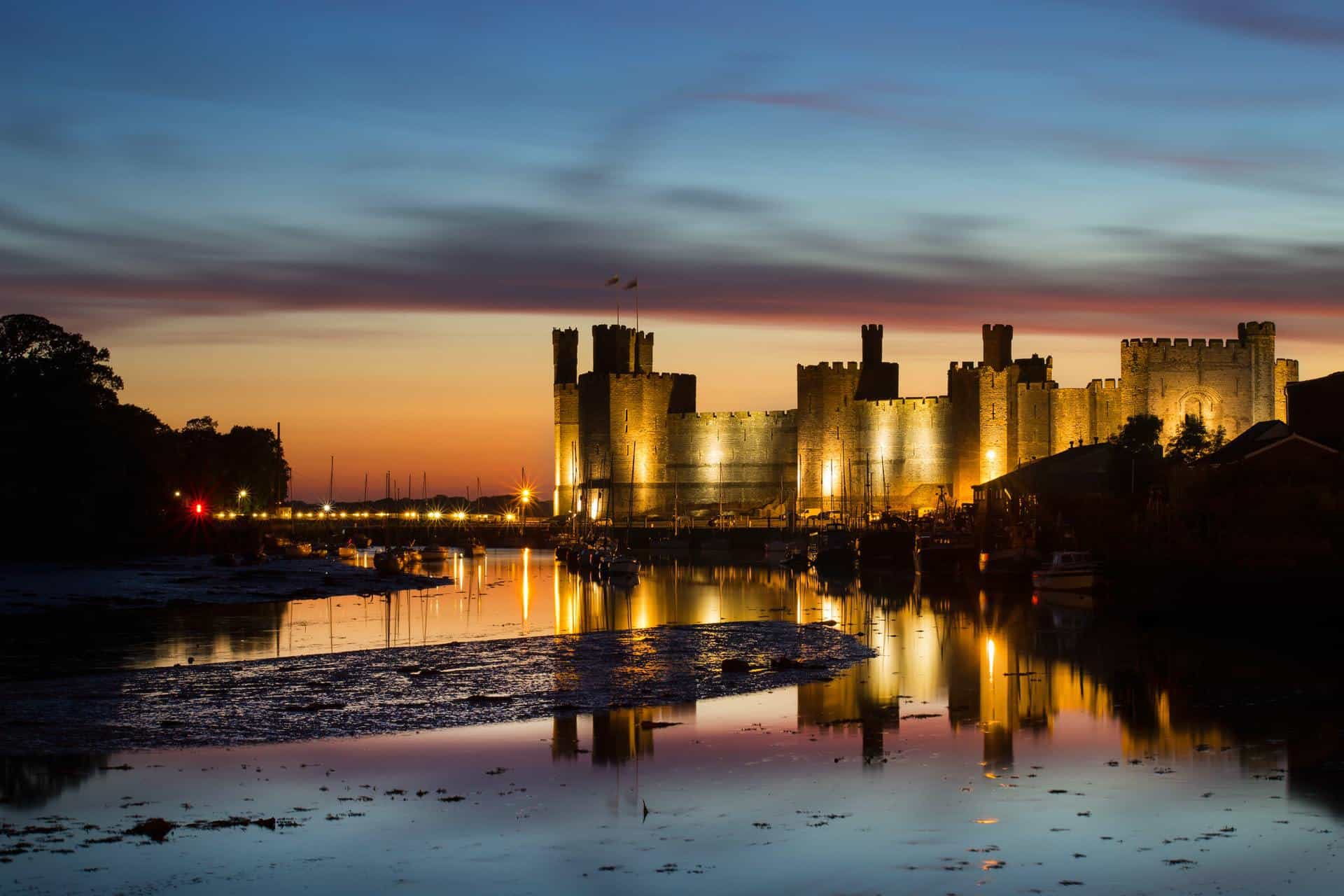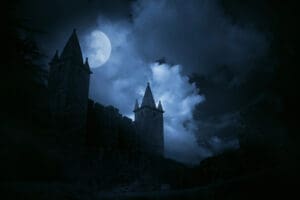6 Top Welsh Movies

Updated On: November 22, 2023 by Asmaa Alhashimy
Welcome to our list of the top 6 Welsh movies. We’re so excited to share our favourite movies with you, and we hope they’ll also be your new favourites. Welsh movies are frequently quite exciting and enjoyable to see.
They are renowned for their outstanding acting and captivating plotlines. You probably need to consider the kind of actors who appear in Welsh movies or the types of settings they employ when you think of them. Instead, you feel how excellent the narrative will be.
We’ve compiled this list to celebrate Wales’s rich culture, which is often overlooked by international audiences. While Wales is a small country in the United Kingdom, it has a long history and profound culture that dates back thousands of years. We hope you’ll greatly appreciate this incredible country by sharing these movies with you.
Twin Town (1997)
Twin Town has undoubtedly benefited from having executive producers Danny Boyle and Andrew MacDonald on board. Still, this film isn’t afraid to roll its sleeves, spit in your face, and fight its fights. To refer to it as “Welsh Trainspotting” is a masterstroke of marketing but is wildly inaccurate.
Twin Town promises sex, drugs, and shock’n’roll, much like Boyle and MacDonald’s orange-hued stormer, but the similarities must end there. Swansea is the setting, and the twins are obnoxious, lewd, and insane. However, they are not identical twins. Instead, Jeremy and Julian Lewis are identical twins who are brothers.
They have everything in common, including thoughts, drugs, baths, and a complete disregard for the law and the moral principles that make it safe for respectable people to stroll the streets. Passing them might be the issue since the Lewis guys tend to drive very quickly and carelessly in automobiles they have stolen just for the pleasure of getting from A to B. They scrape Terry’s (Scott) motor on one of these excursions.
This copper is so contorted you could hang a Hawaiian shirt on him, adding fuel to the conflict about to break out. The twins devise a clever scheme to have their neighbourhood’s Mr Big, Bryn Cartwright, who deals drugs with Terry and his sidekick Grey. Pay back the boys’ handyman father, Fatty Lewis. Their retaliation, though frequently improbable, is bitter, twisted, and funny.
It involves some darkly comic set pieces (a hearse stolen from a funeral) and at least one genuinely unpleasant incident (a dog’s severed head). Still, overall it’s a kick-ass riot of a journey that’s about as respectful as a whoopie cushion at a christening. The script, which Kevin Allen, a first-time filmmaker, co-wrote, shoots out F-words like machine gun bullets and colourful white-trash characters like the guest list of the worst party on the street.
But that’s the point—Twin Town is a lowlife town that takes pride in being one. It is harsh, grizzly, and not for the weak of heart. Hollywood is given a giant index finger as a request to spin. Twin Town is here with a jarring awakening. So much for romance and dreamy, feel-good endings.
Human Traffic (1999)
One of life’s truths is that those who use drugs tend to perceive themselves as less dull than they are. On the other hand, using drugs yourself is much more intriguing than hearing about using drugs. Both statements are factual of Kerrigan’s portrayal of Britain’s chemical youth, which struggles to convey the vicariously euphoric experience of his in-love raver characters to a sober audience.
Five friends are followed over a wild weekend in Cardiff. They are their sparky friend Nina and her envious lover Koop, Jip, who has clubber’s droop. And his soul mate Lulu, Moff, a motormouthed diamond geezer who promotes Class-A goods. The protagonists’ experiences are similar to those of many of their peers across the nation, except Moff is caught masturbating in front of the mirror by his mother. Howard Marks shows up in a fantasy sequence to give a speech on mythology.
They sneak into clubs, do drugs, dance, shag, snort lines, spout verbal diarrhoea, become paranoid, and have comedowns. They lose the plot as well, which is essential. The commotion on the dance floor, the authenticity of the slang, and Kerrigan’s observations on rave culture are less in doubt than the lack of a clear narrative arc, the clumsily episodic structure, the characters’ ability to transcend stereotypes or the movie’s fundamental worth as compelling cinema.
Grand Slam (1978)
BBC Wales produced the 1978 sports comedy movie Grand Slam. Hugh Griffith, an Oscar-winning actor, appeared in the film alongside Windsor Davies, Dewi “Pws” Morris, and Sion Probert. Gwenlyn Parry and John Hefin, then the drama department head for BBC Wales, wrote the piece for television.
The Five Nations Championship game between France and Wales will determine who will win the Grand Slam, played in Paris this weekend. Four Welsh rugby union team members will be there to see it. Caradog Lloyd-Evans (Griffith), a funeral director who served for a brief while in occupied Paris near the conclusion of World War II, is one of the group.
Under the condition that Glyn (Morris) embarks on a “pilgrimage” to find his “little butterfly”. With whom he had a fleeting romantic encounter during the war, Caradog pays for his son Glyn’s plane ticket. Although the right location is identified, this pilgrimage is booming, and the innocent cafe of his youth has been replaced by one of numerous strip club establishments.
A young girl in the club that Mr Lloyd-Evans mistakenly believes to be his “little butterfly” turns out to be Odette (Sharon Morgan), his ex-girlfriend’s daughter. He is (of course) disappointed, but Glyn gets to know Odette. At the same time, Caradog talks about his “butterfly” (played by Marika Rivera).
The tour group is brought to the club by a quick call to the hotel. They are joined by retired player and club secretary Mog Jones (Davies), whose dream of representing his country on the field was never realised. A significant brawl breaks out after some locals take offence, and the police are called to end it.
Except for Caradog (who is shielded by his “butterfly” Madame) and Glyn, the entire group is detained. Maldwyn Pugh, the proprietor of the camp boutique, is played by Sion Probert. He is the only one of the main four characters to appear at the start of the match because Mog is still in jail because he was thought to be the ringleader.
Caradog has passed out near his strip club table, and Glyn is attempting his own sexual “Grand Slam” with Odette while taking a break to watch the game on TV. Midway through the first half. Mog is eventually let go, but by the time he gets to the stadium.
Wales has lost with just seconds left. Maldwyn is left without the precious signing of Gareth Edwards, and Mog has yet to see a Welsh Grand Slam victory. After the match, Caradog is discovered, and Madame believes he has passed away. However, Odette shoots a soda syphon in his face. The story concludes with Caradog cautioning his son about the risks of travelling abroad.
Only Two Can Play (1962)
This movie might be considered a Welsh adaptation of THE SEVEN-YEAR ITCH. It takes some humorous turns as we observe Sellers in yet another of his masterful characterisations. One of the employees of the Welsh library in Swansea is named Sellers. He is frustrated with his landlord, Edwards, his children, his wife, Maskell, and pretty much every other aspect of his existence.
He is also bored with his wife, Maskell. He takes mental refuge in daydreams of having affairs with alluring women. One day, a stunning woman does enter his monotonous routine and throws him for a loop.
Zetterling, the wealthy and seductive wife of drab Huntley, is a prominent community member. Sellers pique her interest, and they intend to have a brief liaison. The comedy in the film’s middle is their futile attempts to give in to this emotion.
In a comedic sequence, Zetterling convinces Sellers to go for a drive with her rather than to the theatre, preventing him from writing his newspaper review of the regional stage show. He pushes all the wrong buttons while operating her brand-new car, equipped with various cutting-edge features. When they thought they were utterly alone after parking in a lonely field, a cow appeared and peered in the window.
Huntley then appears. Sellers reviews a performance he never attended, not realising that it was cancelled because the theatre burned down. His supervisor at the newspaper is furious, but Zetterling uses her connections to secure Sellers the position of head librarian, lessening the impact.
Maskell has been casually flirting with two-bit poet Attenborough in the meantime. Sellers knows that if he accepts the post, he might not be able to perform the extracurricular activities he enjoys. So he says “Ta-ta” to the job and Zetterling before returning to Maskell.
Now that he has a mobile library, he can continue to be near his family, including his wife and kids. Anyone who has ever been in a boring marriage will be able to relate to this humorous film’s truth. Never take it too far.
Tiger Bay (1959)
Based on the Noel Calef short tale “Rodolphe et le Revolver,” A 1959 British crime drama movie called Tiger Bay. Director J. Lee Thompson oversaw it. The majority of the film was filmed on location in Cardiff’s Tiger Bay neighbourhood, at Newport’s Transporter Bridge and in Bristol’s Avonmouth Docks.
Along with numerous dockside images, scenes in actual bars, and locations in the surrounding countryside, it includes countless real-life settings of the black and kid street cultures of the time. Bronislav (“Bronek”) Korchinsky, a young Polish sailor, arrives in Cardiff with plans to pop the question to Anya (Yvonne Mitchell). He finds Anya gone, though, and someone else residing in the apartment.
Even though Bronek was sending Anya regular payments, the landlord revealed that she departed the property a few weeks ago and still owes back rent. Bronek settles Anya’s debts in exchange for the landlord giving him her new address. Gillie Evans (Hayley Mills), a tomboy who is an orphan and resides with her aunt, is playing with guys at the pier.
To find the address he has been given, Bronek approaches the gang and asks for assistance. He strolls beside Gillie, who also resides in the same building. Anya tells Bronek to leave after he discovers her in her new apartment.
Anya has been dating married sportscaster Barclay out of frustration over Bronek’s long maritime voyages (Anthony Dawson). She grabs a revolver from her dresser as Bronek screams at her, but he grabs it and shoots Anya dead. Bronek is enraged by jealousy.
Gillie, who had been playing with caps in the hallway, hears the yelling and sees the murder as she peers through the letter box of the apartment door. Gillie’s cap-play has also prevented the rest of the building from hearing the gunshots. Gillie discovers Bronek’s hiding place for the gun and grabs it to play. When Barclay finds Anya dead upon his arrival to see her, he immediately leaves. The body is found by a neighbour, who calls the police.
Graham (John Mills), the investigating police superintendent, finds that Gillie was in the hallway when the gunshot occurred and assumes that she saw the murder. But chronic liar Gillie misrepresents Bronek and fails to disclose to Graham that she is the one with the gun. Later, Gillie is pursued into the attic by Bronek, who witnessed her steal the weapon.
They become friends after he takes the pistol away from her. He promises to take her to sea when he leaves the nation. Bronek has made plans to leave the following day on the Poloma, a Venezuelan merchant ship. Gillie helps him find cover in the countryside, where he keeps her entertained by acting out his travels.
In the meantime, a picture of Bronek and Anya together is found by the police, raising suspicions about Bronek’s identity. When questioned by authorities, Barclay confesses to going to Anya’s apartment on the day she was shot, making him the main suspect. Gillie agrees to let Bronek travel alone once the Poloma sets sail.
Bronek leaves her behind with his metal cigarette box. Gillie is discovered at the rural hideout by some picnickers. When they take her to the police, she keeps telling lies and accuses Barclay of killing the victim. She claims she witnessed the crime and recreates it for Graham at the flat with Barclay as the suspect; however, she unintentionally spills the killer’s ethnicity.
Still, the authorities know Bronek is the murderer despite her denials that she knew him. The three-mile restriction for British legal jurisdiction is something that Bronek and the police are both aware of. As the ship nears the edge of territorial waters, Gillie is taken on a pilot boat to the Poloma by Graham after he drives her to the pilot station at Barry Docks. Gillie is attempting to block Graham’s advancement at this point.
Gillie and Bronek deny knowing one another when the inspector encounters them while travelling together on the Poloma. The ship’s captain steps in to prevent Graham from arresting Bronek and making the allegation that Poloma’s location was barely outside the three-mile limit and hence not under British police jurisdiction.
Gillie tries to hide from the crew and the police by running around the ship, but she falls overboard while attempting to stow away in the hopes of staying with Bronek. Bronek, the only one to witness her fall, jumps into the ocean to save her but loses his ship. The police boat dispatched from Barry Island saves the couple. Gillie hugs Bronek when he confesses, and Graham praises him for saving her. His opportunity for freedom has been lost as the Poloma sets sail.
Headway (1992)
1992’s Welsh anti-war biopic Hedd Wyn was released. Ellis Humphrey Evans, a farmer’s son and poet who resides in Trawsfynydd in the Meirionydd region of highland Wales contends for the most desired award in Welsh poetry. The chair of the National Eisteddfod was scheduled to be held in Birkenhead in August 1917. (one of the rare occasions when it was held in England).
Despite his initial reservations about going to war, Evans subsequently leaves Meirionydd by train to join the Royal Welsh Fusiliers in Liverpool after submitting his entrance under the bardic name “Hedd Wyn” (“Blessed Peace”). Ellis is assigned to the trench warfare in Flanders. The first Welsh-language film to receive an Oscar nomination was “Hedd Wyn”.
We hope you’ve enjoyed the list of our favourite Welsh films. These movies have been a blast to watch and write about, and we hope they can be as much fun for you.






